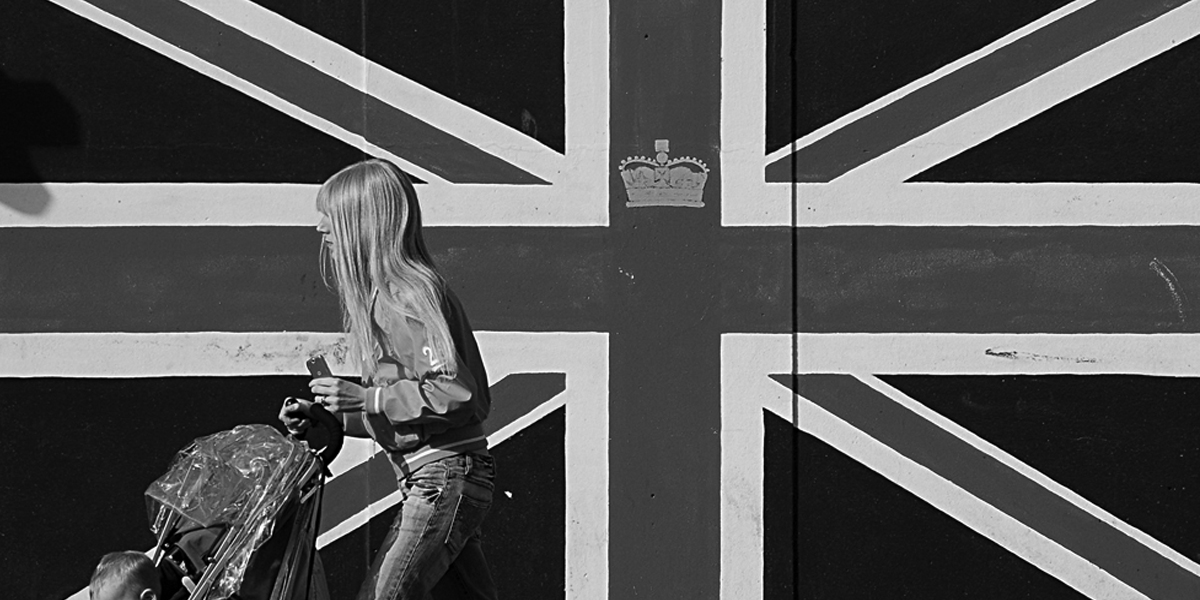The left’s uneasy relationship with patriotism – and why it should still celebrate British culture
During the Falklands war, the History Workshop Journal and the great social historian Raphael Samuel organized a series of workshops on patriotism. Prompted by anger at the way that nationalism had been harnessed in service of the war, and frustrated...
During the Falklands war, the History Workshop Journal and the great social historian Raphael Samuel organized a series of workshops on patriotism. Prompted by anger at the way that nationalism had been harnessed in service of the war, and frustrated with the timidity of opposition to the war in the face of what he perceived to be nationalist propaganda, Samuel and his colleagues hoped the workshops would show that patriotism and nationalism were ideological fictions that disregarded the complexity and pluralism of British history and experience. But what the workshop failed to do, Samuel admitted, “was to come to terms with, or address, the patriotic sentiments in ourselves.”
Facing his own struggle with nationalism in his 1941 essay The Lion and the Unicorn George Orwell had observed that “England is perhaps the only great country whose intellectuals are ashamed of their own nationality.” More than fifty years later in more peaceful times the left is again facing questions of national identity, nationalism, Britishness, and, sometimes, Englishness, in response to the threat of Scottish Independence, the rise of UKIP, and globalization.
In May I spoke to the Young Fabians Patriotism Project about British culture and character. As a Canadian who researches mid-twentieth century British political history, talking about Britishness to British people can be daunting. More daunting yet was the fact that UKIP had staged an electoral upset with historic gains in local and EU elections across Britain on that very day.
I argued that although the left has not, historically, had an easy relationship to patriotism, it has also, arguably, been obsessed by it.
As the historian Miles Taylor shows, for Edwardian left-liberals like J.A. Hobson, patriotism was synonymous with ‘jingoism.’ Writing in response to popular imperialism during the Boer War Hobson feared that the public was essentially irrational and easily manipulated, and associated patriotism with a fear of mass political participation. For Hobson patriotism, or jingoism, was a manufactured state that harnessed popular opinion in support of war-mongering and imperialist and capitalist interests. These concerns about patriotism derived from a fear that people’s political decisions were swayed by their instincts rather than their intelligence, and reflected a broader fear that the public was inherently irrational.
The carnage of the first world war made nationalism an even more confusing issue for progressives: though the war had strengthened national identity, its horrors had made people more cautious of overt displays of nationalism. In the 1920s left liberals and Labour supporters frequently ascribed to explicitly internationalist as opposed to nationalist ideas, throwing their energies behind the League of Nations and the Peace Ballot.
But in the 1930s and during the second world war thinkers on the left began to explore a different brand of patriotism based not on pride in the central state, but on a conscious embrace of Britain’s democratic traditions and institutions. For Orwell during the second world war Britishness – or more precisely, Englishness – was worthy of celebration because English cultural institutions were not uniform or orchestrated, but plural and rooted in an ongoing struggle for democracy. Patriotism was acceptable for Orwell when it represented a conscious, rational choice made on the basis of organic institutions, rather than when it was imposed by the state or whipped up in the service of a military project.
There is a risk that the invocation of patriotism by the left today risks coming across as insincere, parochial or worse. At the Young Fabians Patriotism Project Chris Reilly spoke about popular disengagement with politics, and emphasized that Labour needed to think seriously about how it engaged or failed to engage with its constituents. Annajoy David spoke eloquently from her own experience about how the musical collective Red Wedge had created a platform for young people to engage with and influence politics in the 1980s, and underlined how important it was that the state take the lead in promoting culture.
Any leftwing engagement with patriotism should avoid symbolic shows of nationalism and focus instead on creating, promoting and strengthening the institutions that make people proud of their culture. A left patriotic politics, at best, celebrates diverse, dissonant and dissident voices, and emerges from a rich civic culture. At worst, it denies the very spirit of is own radical traditions.
Lise Butler is a DPhil candidate in History at University College Oxford
